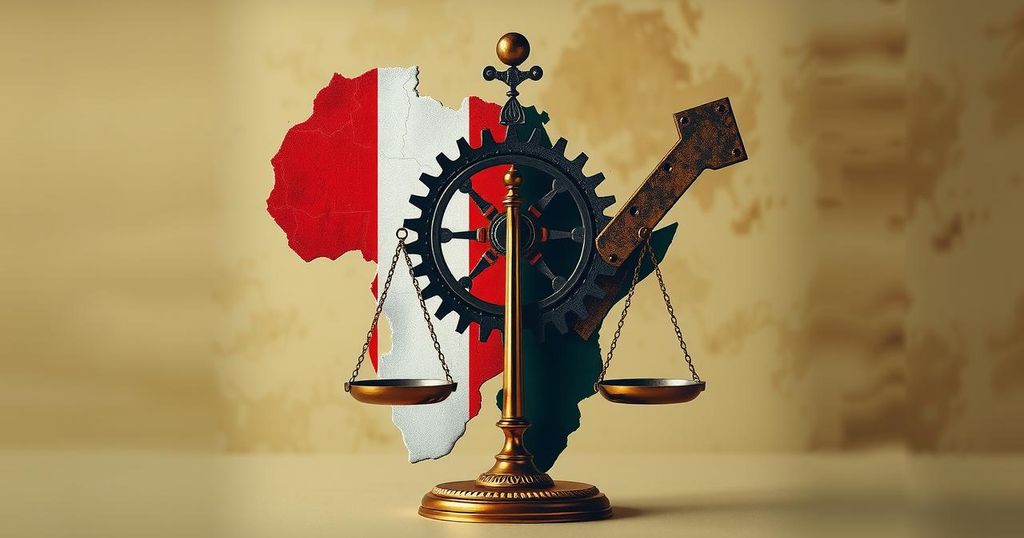Tensions escalate between South Africa and Rwanda over the DRC conflict as South African President Cyril Ramaphosa accuses M23 rebels of killing peacekeepers. Rwanda’s Kagame refutes claims, labeling South Africa a “belligerent force”. Both leaders stress the urgent need for ceasefire and peace negotiations, amidst a backdrop of long-standing diplomatic strains and military engagement in the region.
In the Democratic Republic of Congo (DRC), tensions have intensified between South Africa and Rwanda following President Cyril Ramaphosa’s accusations against the Rwanda-backed M23 rebel group for the deaths of South African peacekeepers. South Africa has warned that further attacks on its military would be perceived as a declaration of war. In response, Rwandan President Paul Kagame labeled South Africa as a “belligerent force” aiding the Congolese government against its citizens.
The ongoing conflict has claimed 13 South African soldiers’ lives in recent fighting as the M23 captured significant territories, including the city of Goma. Previous incidents saw seven South African soldiers killed in the area in 2022. Diplomatic relations between the two nations have often been strained, with incidents dating back to 2014 impacting their interactions.
Despite a prior thawing of relations during Ramaphosa’s visit to Rwanda, the current situation has reignited tensions after South African troops were deployed on a peacekeeping mission in December 2023 as part of the Southern African Development Community (SADC) efforts. Ramaphosa recently indicated that both leaders recognized an urgent need for a ceasefire and resuming dialogue regarding the ongoing conflict.
Ramaphosa’s statements emphasized that the involvement of South African forces should not be misinterpreted as an act of war against any nation, directly addressing criticisms from Kagame. Nevertheless, Kagame refuted Ramaphosa’s claims, asserting that the Rwandan Defense Force is a legitimate army and denying responsibility for the deaths of South African military personnel.
Kagame further contended that South Africa’s engagement classified them as a “belligerent force” siding with groups operating against Rwanda. He warned that Rwanda would address any aggressive moves from South Africa directly. The historical involvement of South African troops in DRC issues, alongside economic interests, significantly affects the current situation, as instability in the region has implications for South Africa’s mineral imports.
Given the long-term conflict dynamics, Ramaphosa faces a challenging decision: maintain military presence and risk further casualties, or consider withdrawing troops after negotiations for safe passage with Rwanda. The upcoming SADC summit may provide clarity on the operational future of South African forces amid the mounting crisis in DRC.
The deteriorating diplomatic relations between South Africa and Rwanda stem from the ongoing conflict in the DRC, where Rwanda allegedly supports the M23 rebel faction. South Africa’s involvement has historically aimed to stabilize the region while safeguarding its economic interests linked to mineral extraction. As both nations wrestle with militaristic exchanges and rising tensions, the situation reflects broader geopolitical challenges in the African Great Lakes region.
The latest developments in DRC underline the fragile diplomatic landscape between South Africa and Rwanda, further complicated by military engagements and historical grievances. With significant loss of life among peacekeepers, both nations must navigate a path toward de-escalation and peace talks, balancing national interests with international responsibilities.
Original Source: www.bbc.co.uk




